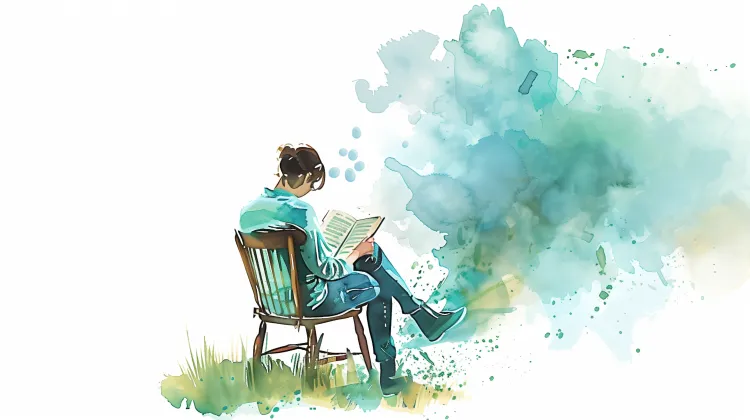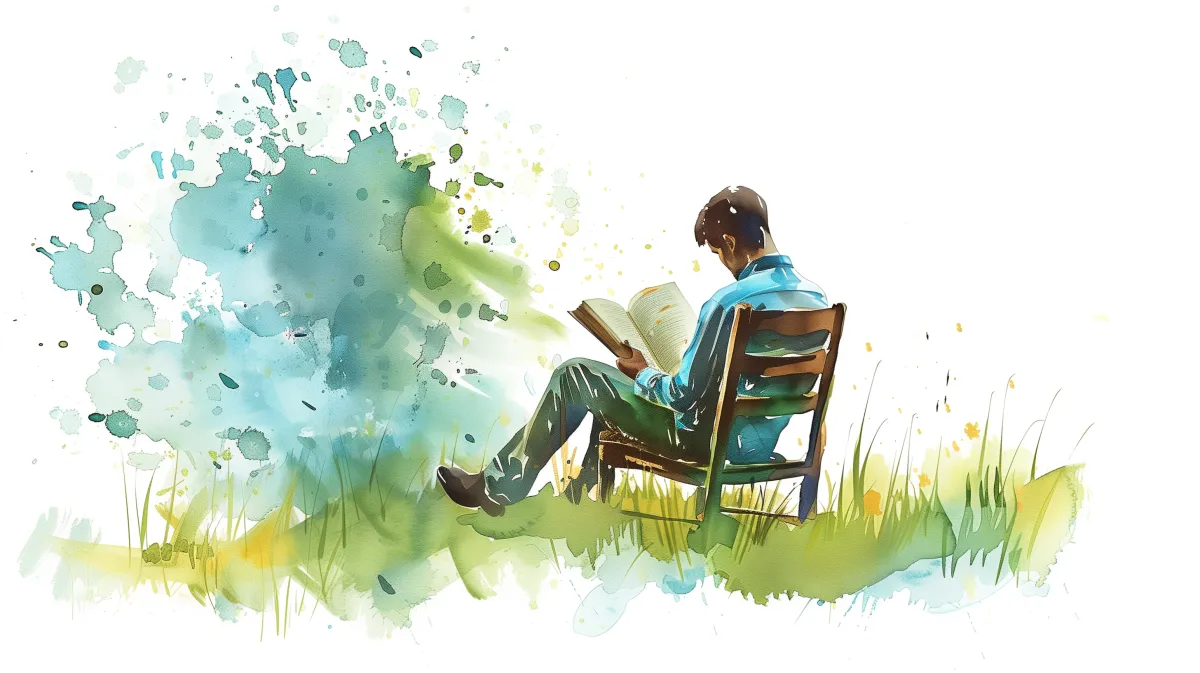Reading Guide
How to Find Joy in Reading and Make it a Habit
• public
Table of contents
I suggest taking a look at the purpose of the guide, the table of contents, and its story. This way, you'll easily see value of it.
But if you're eager to dive right in, you can get this 18,700+ word guide below.
The Purpose of This Guide
I'm sure you've seen articles and videos about reading books online. We've all grown up hearing phrases like "you should read books" and "reading is good," right?
And let’s be honest, a lot of us have found reading to be boring at some point, especially when we had to do it in school. It's normal; we've all been there.
This guide is not another recommendation to read. I want to answer some important questions, such as:
- What is true reading?
- How does it affect us?
- How can you start?
- Where are you in your reading journey?
- How can you make progress without getting bored?
If you already have good reading habit, I’m also giving tips to improve it;
- How can you remember what you read?
- How can you choose content (Books, articles etc.) more wisely?
- How can you enjoy more and challenge yourself?
In broader perspective, we think with words, with language. So, the language we use shapes our thoughts. If we can use it better, our thinking will be better. We can understand more. We can be more intelligent.
Reading is an effective method to achieve that. That's the main purpose of this guide. It's not only for improving your reading skills, but also for improving your way of thinking.
I'm not only talking about reading books, but also about reading in general. Such as articles, blog posts, and other things.
Who is This Guide For?
- If you got bored while reading,
- If you don’t know where to start,
- If you want to read more, but don’t know how to do it,
- If you want to build reading habit,
- If you already have reading habit, but want to improve it,
Then, this guide is for you.
Actually, it is helpful for about anyone. It will help you to get following benefits more;
- Reading increases your intelligence. (Source)
- Reading heals your mind. It has even name for it which is Bibliotherapy. (Source)
- It reduces your stress level by %68. (Source)
- Reading is 3 times more effective at reducing stress than walking. It is also 7 times more effective than playing video games. (Source)
- You will have better sleep like 50% of people who read before going to bed. (Source)
- You will feel less lonely. (Source)
- You won’t get older mentally, because reading decrease mental decline in the elderly by 32%. (Source)
- Reading can boost your career prospects by %50 to %100. (Source)
- Reading fictional books increase your decision making by %50 to %100. (Source)
What Will You Get?
By the end of this guide, you will get the following:
- A unique perspective on the benefits of reading.
- Simple and practical steps to help you develop a reading habit.
- Effective templates and hub for reading to enjoy and manage your reading journey. (Reading Hub)
- Book recommendations that will make you fall in love with reading.
- Extra sources to deepen your knowledge of reading.
You can also check content of this guide in detail below;
Table of Contents of Reading Guide
Introduction
- The Purpose of This Guide
- Who is This Guide For?
- What Will You Get?
- How to Apply This Guide?
- Story of This Guide and Me
- Reading Bias “Reading is boring.”
Reader Types
- Determine Your Reading Level Quiz
- How to Calculate Your Point
- Recommendations Based on Your Reading Level
Novice Reader
- How to Start Reading
- Reading Changes Your Life
- Preventing Boredom
Casual Reader
- How to Choose Books
- How to Read a Book
- What to Read Online
- How to Read Online
Enthusiastic Reader
- Creating Good Reading Plan
- Developing Reading Habit
Avid Reader
- How to Read More
- How to Remember Books
- Books About Reading
Bonus Sections
- Digital vs Printed
- Five Apps For Readers
- Making Your Children Read
- Short and Effective 16 Books
Your Thoughts
You can subscribe below and get this guide for free;
How to Apply This Guide?
You can apply everything in this guide and much more via following hub. If you want detailed information, click on it.

Story of This Guide and Me
When I was young, I discovered the world of reading. It's been a huge part of my life ever since.
Books can do a lot of cool things. They can change how you see the world. They can heal you. They can transform you.
I always wanted to share this excitement with others. I started telling my friends about those perfect books. I wanted them to realize that reading is not just for school; it's a fun, exciting and life changing activity.
I tried writing about books on blogs and social media, but it didn't quite capture how much I loved reading. It also didn’t help people know where to start reading and how to make it consistent.
I decided to create a guide. I put down everything I knew about reading—why I enjoyed it, how it helped me, and how anyone could experience same things too. It's like a step-by-step clear guide that anyone can follow.
Now, I'm here to share it with you. My goal is to make you love reading and show you that it's fun but also useful.
If you get good at reading, you can learn almost anything! It's like having a special tool that opens up lots of possibilities. What you do with it is up to you—maybe learn new things or go on exciting adventures in your mind.
In the end, everyone's reading journey is unique. If you want to start yours, just take a look at this guide and try it out.
I hope you enjoy using it!
Get It For Free
You can subscribe below and get this guide for free;
Your Thoughts
Want me to make a new section on a certain topic or expand an existing section? Or did you notice a bug, wrong information on the website? Drop me a line at info@gorkemgumustekin.com. I love hearing your thoughts and suggestions.
Support My Work
Did you find my content helpful or enjoyable? You can click below to leave a tip if you'd like to support my work! Your generosity is greatly appreciated and helps me continue creating valuable content for you and others. Thank you for considering!
Support My Work
